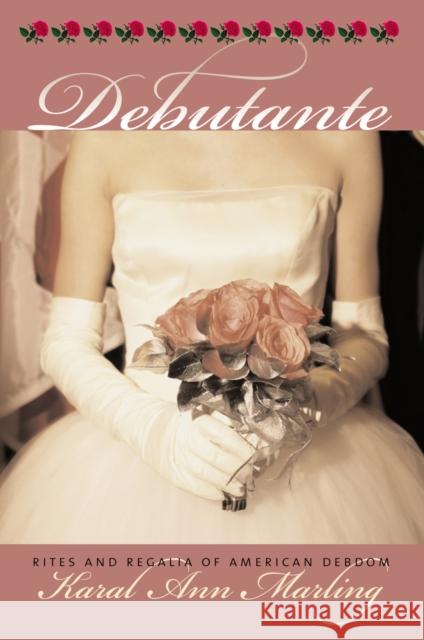Debutante: Rites and Regalia of American Debdom » książka
topmenu
Debutante: Rites and Regalia of American Debdom
ISBN-13: 9780700613175 / Angielski / Twarda / 2004 / 230 str.
It is an institution that seems almost hopelessly out of date, a social relic of bygone times. The very word "debutante" evokes images of prim, poised beauty, expensive gowns, and sumptuous balls, all of which seem anachronistic in these post-women's liberation times. But as Karal Ann Marling reveals, debdom in America is alive and well and ever evolving.
For thousands of young women every year, the society debut remains a vital rite of passage, a demonstration of female power; debs continue to be viewed as the finest flowers of a distinctive American culture. The debut and its offshoots--the high school prom, the sorority presentation, assorted beauty pageants--continue to emphasize celebrity, class, and community. But why does this peculiar tradition persist? Marling has the answer, as she demystifies debdom and the "long-term American hankering after the trappings of royalty." Debutante presents a penetrating and entertaining look at American debdom from the colonial era to the present day. Debbing has always been a performance art, created by and for women. In its heyday in the nineteenth century, debut signified the formal presentation to elite society of a young woman of substance who was eligible for marriage. During the twentieth century, it evolved from the glamour girl galas of the Great Depression to the charity bashes of the 1980s after the "Deb Drought" of the '60s and '70s. Marling reviews this colorful history, documenting changes in debdom right up to our own day, when the sisterhood of debs includes African Americans, Latinas, and members of other ethnic groups once carefully excluded: now even economically disadvantaged young women have their coming-out, where the emphasis of the event is on community. In these pages, aspiring debs and curious readers alike will be taken from teas and cotillions to cafe society and discover the rich material culture of debdom, with its flowers and favors, gowns and pearls. They'll also meet famous debs of the '30s like Woolworth heiress Barbara Hutton and glamour girl Brenda Duff Frasier; experience black American high society at the debut of Nat King Cole's daughter Cookie; and attend such civic spectacles as Kansas City's Jewel Ball and St. Louis's Veiled Prophet Ball. In sparkling prose graced by a gallery of captivating photos, Marling provides an illuminating inside look at debs and a world that continues to celebrate the spirit and diversity of American womanhood.










